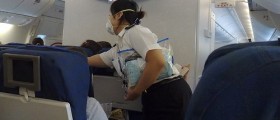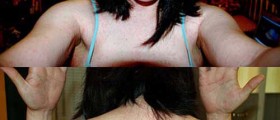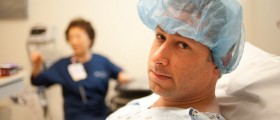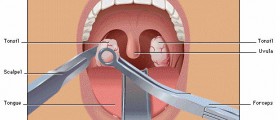
Mononucleosis, also known as 'kissing disease', is a viral infection caused by Epstein Barr virus. The infection predominantly affects teenagers and apart from being transmitted by kissing, mononucleosis can also develop after any kind of close contact that allows droplets to spread from the infected person to a healthy one.
The presentation of mononucleosis varies a lot. Some people do not develop serious symptoms and signs of viral infection and suffer only from flu-like symptoms while others develop a more serious form of the disease and even require hospitalization.
Mononucleosis: Symptoms
After incubation period (4-6 weeks) a patient develops mild symptoms such as headache, malaise and fatigue. Progression of the disease leads to sore throat and inflammation of tonsils which become swollen and red. Enlargement of the cervical lymph nodes is another characteristic of mononucleosis. Fever is usually as high as 104°F to 105°F and it lingers for maximum of two weeks.
In severe form of the disease one may suffer from spleen and liver enlargement. Additional symptoms include nausea, abdominal pain and muscle aches. In case a child suffering from mononucleosis is prescribed antibiotics this can lead to the occurrence of bad skin rash.
Diagnosing Mononucleosis
In a majority of cases typical presentation of the disease makes it rather easy for a well experienced doctor to set the diagnosis. In cases of mild forms a child may not even go to a doctor so the diagnosis is not set, but the infection leads to production of certain antibodies that can be easily confirmed in the blood.
Apart from physical examination, a doctor also performs several tests such as a complete blood count (it may point to the presence of atypical lymphocytosis), a heterophil antibody test (positive results are obtained only certain time after the onset of the infection) and Epstein-Barr virus titers.
Mononucleosis: Treatment
There is no specific treatment for mononucleosis and the goal of the therapy is to reduce symptoms of the infection. Mononucleosis is caused by a virus and this is why patients are not prescribed antibiotics. Administration of antibiotics to patients suffering from mononucleosis will only lead to skin rash. Supportive therapy includes administration of medications that will reduce fever. It is essential for all the patients to have plenty of rest and those with an enlarged spleen and/or liver need to be hospitalized. One is also supposed to take plenty of fluids to prevent dehydration. If fluids cannot be taken orally they are administered intravenously. Patients suffering from mononucleosis, particularly those who have had enlargement of the liver and spleen, are supposed to abstain from strenuous physical activity for a certain period of time. This way potential complications such as spleen rupture can be successfully prevented.
















Your thoughts on this
Loading...